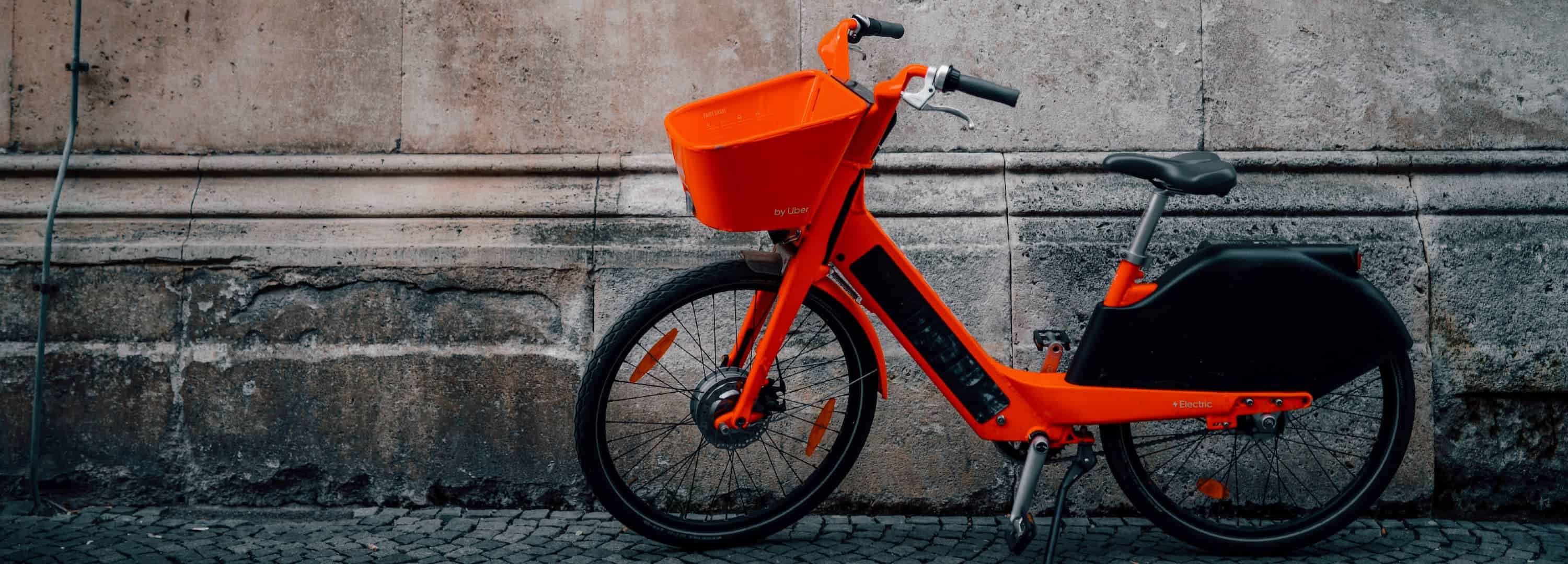Electric bikes - Why ‘e’ is now for everyone
11 May 2021
Every innovation has its moment. The point at which it crosses over from novelty or niche to being a mass-market product that solves a real need (though it doesn’t always happen - anyone remember Google Glass?)
Where it’s not just those trendy ‘early-adopters’ buying but regular folks too - people like us. It becomes the right thing, in the right place, with the right expression on its face - and that thing just now is an electric bicycle. Although there’s actually nothing new about powering a bicycle using electricity. The earliest known ‘e-bike’ was the 1881 Trouvé tricycle created by Gustav Trouvé in Paris. He did this by attaching the latest in battery technology to an existing tricycle made by Englishman James Starley (known as the father of the bike industry). It was as much an early attempt at a car, the history of both the bicycle and automobile are heavily intertwined. It’s tempting to imagine what the world might now look like had those early experiments with electric vehicles been more widely adopted than their combustion-engined rivals. Our love of the fossil fuel-powered internal combustion engine certainly has much to answer for. It seems then to have taken a mere 140 years for the e-bike concept to truly come of age.There are many reasons why the time is now for the masses to turn to electric bikes. There’s the functional stuff, like the fact the technology has been refined to a point where it’s more reliable, versatile and increasingly cheaper. But there’s the bigger picture too - our awareness of the need to combat climate change and of course the seismic shift in attitudes caused by the pandemic.
2020 saw a huge spike in interest in bicycles as a whole but particularly e-bikes. A Europe-wide YouGov study found that 25% of all Europeans intended to use an e-bike in 2020 - demonstrating it’s no longer some quirky niche product. In Q1 of 2021 the UK retailer Halfords reported a 114% year-on-year increase in e-bike sales. Here in the UK the government pledged £2 billion to create new cycling and walking infrastructure, recognising that bicycles, and particularly commuting on them, represent an ideal way for people to travel in a socially-distanced way. But there’s more to the cycling boom than just a response to what are hopefully temporary challenges (and god knows we’re all hoping). Perhaps it would help if we stopped referring to them as e-bikes and started calling them ‘personal transport’? The word automobile comes from the Greek for ‘self-moving’ and ultimately everyone simply needs the best method to move around while having the least impact on others and the planet. The accessible nature of electric-powered bikes means that they aren’t just for cyclists (who are ‘cyclists’ anyway, aren’t we all just people trying to get around?).In the UK the average car journey lasts just 22 minutes and in London a third of all car trips are less than 2km. Clearly many of these journeys could be done using an alternative form of powered transport.And maybe that form of transport could be a powered bicycle, yes they are more expensive than a traditional bike but compare them to even the cheapest and smallest car and they start to look like a bargain. Particularly when you consider there’s none of the associated ownership costs like garage bills, tax and insurance (see, we’re not even trying to sell you anything). E-bikes cover a vast range of applications - as varied and versatile as bicycles themselves. From efficient commuter bikes and practical hybrids, to powerful mountain bikes that eliminate the need for a ski lift to get back to the top. Whatever you need from a bike you’ll find an e-bike that suits the kind of riding you want to do. The ‘e’ really is for everyone - from cycling purist to total novice. No matter what level of interest you have they expand your capabilities and horizons, whether that be traversing the Alps or popping to the high street. If you are thinking that now might be the time for you to try one, here are a few things worth knowing before you start looking.
How they work
Electric bikes don’t do all the work for you, you still need to pedal, but the motor knows when you’re applying some force and then adds to it. The feeling is almost like someone giving you a very welcome push - all of the time! In the UK e-bikes are only allowed to assist you up to a speed of 15.5mph (24 kph) so the motor will cut out at that point. Of course you can go as fast as you like, the same as you can on a regular bike, it’s just you’ll be on your own. It’s worth pointing out that e-bikes are generally heavier than regular ones so once you do stop getting assistance, or potentially run out of juice in the battery, they’re harder work to pedal or push. The batteries and motors come in different shapes and sizes but together they’ll add to your own effort by at least 40%, the maximum they add can be up to three times your input - nice! Most bikes come with different settings from low to high, as you’d expect each one affects the amount of effort you need to put in and how long the battery will last.